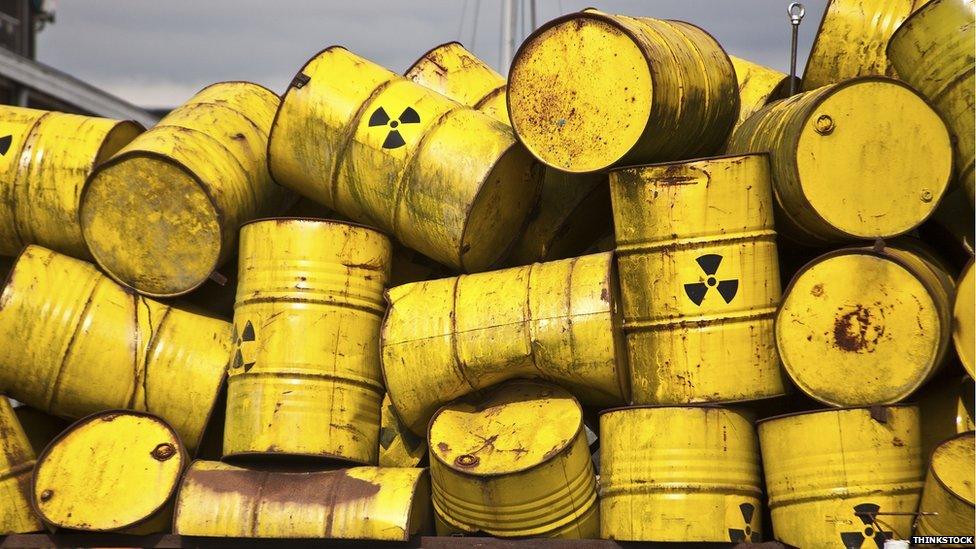South Holderness area considered for radioactive waste disposal
- Published
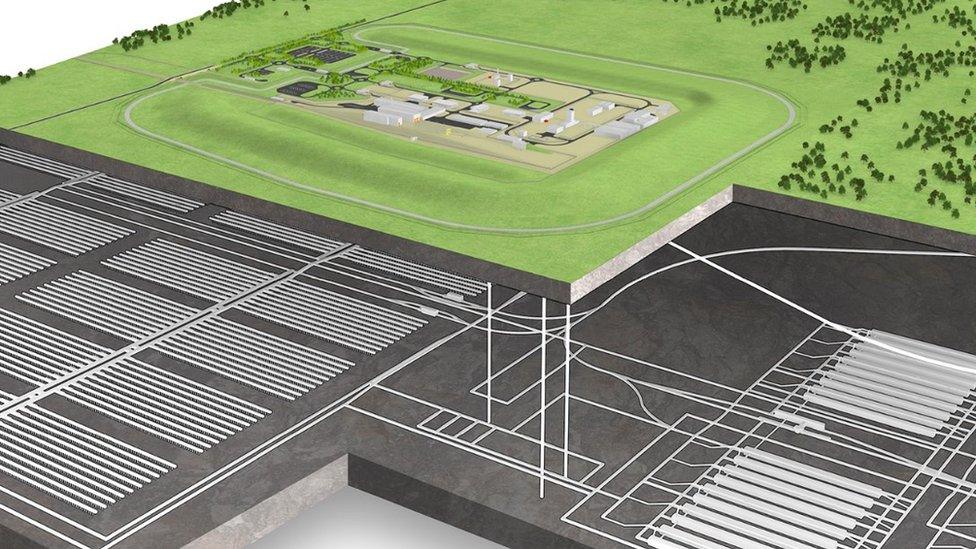
Illustrative example of a Geological Disposal Facility (GDF)
Part of East Yorkshire is being considered for the disposal of nuclear waste from across the UK, according to a government agency.
Nuclear Waste Services (NWS) has identified South Holderness as having potential for a Geological Disposal Facility (GDF).
A working group has been formed to examine the proposals.
However NWS's chief executive Corhyn Parr said the scheme would require the support of the local community.
"This is a consent-based process [and] if the community does not express support for a GDF it won't be built there," she said.
Two similar working groups have already been established in Cumbria and one at Theddlethorpe on the Lincolnshire coast.
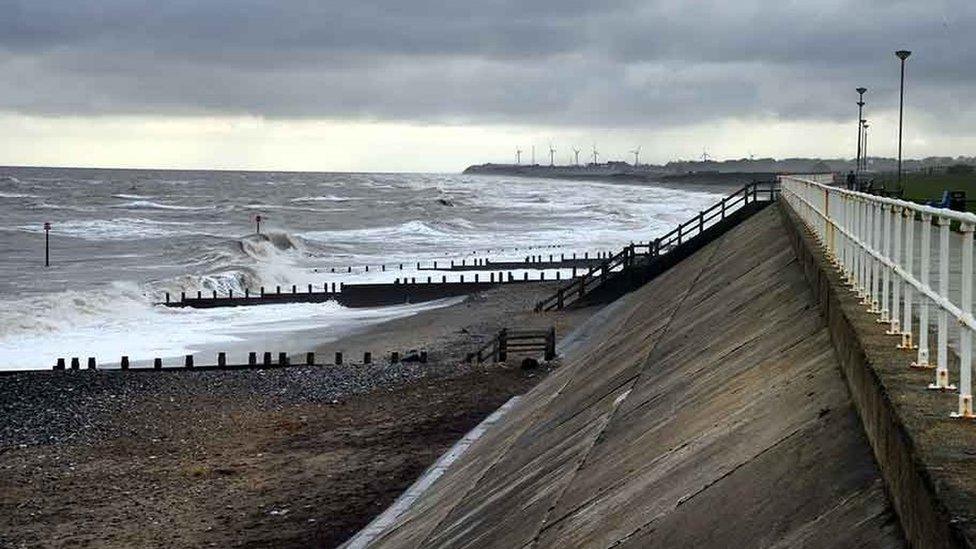
Nuclear Waste Services has identified South Holderness as a search area for a GDF
Dr David Richards, independent chairman of the South Holderness working group, said the aim was to work with communities to discuss the potential of a GDF - a series of vaults and tunnels deep underground, or under the sea, where the material would be buried.
"My role as [chairman] is to make sure local communities have access to information and to understand what people think," he added.
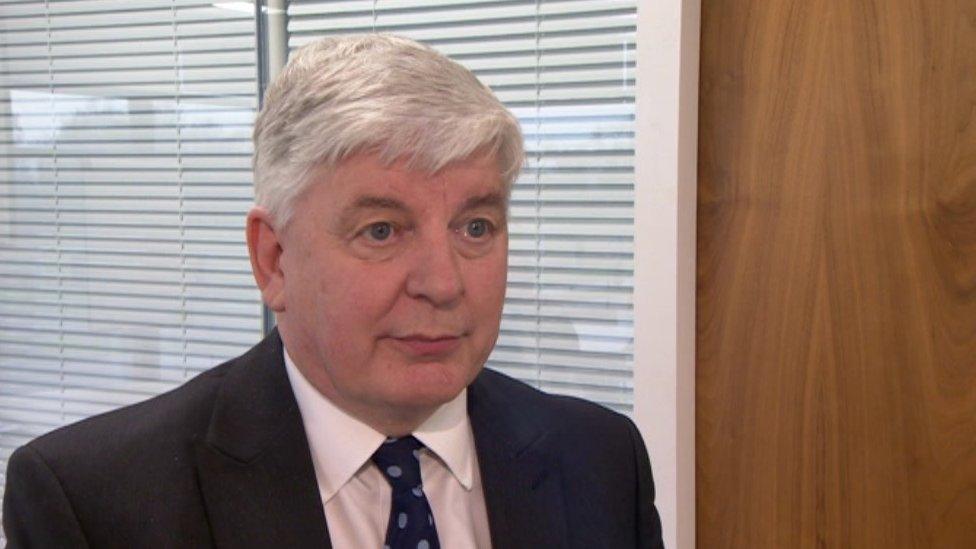
Dr David Richards said local communities would be well-informed about the proposals
The leader of East Riding of Yorkshire Council, Anne Handley, said the authority had accepted an invitation to join the working group.
She said it was the "first step to opening discussions with the community about whether a GDF would be right for the area".
"Understanding what a GDF is and exploring the associated benefits is critical to the decision-making process for any community. It will ultimately be [them] that decides," she added.

Analysis - Paul Murphy, BBC Environment Correspondent
Nuclear power has been part of the UK's energy mix for 70 years and currently provides about 15% of the UK's electricity.
At present, harmful radioactive waste from nuclear power stations is stored in facilities on the surface.
But like any building, these storage structures need maintenance and only have a useful life of about a century. That sort of timescale is but the blink of an eye in the life of radioactive material, some of which can remain harmful for tens of thousands of years.
The need for safe, long-term storage of this dangerous material will continue to rise up the agenda. Convincing residents in GDF communities that these projects are genuinely safe is perhaps the biggest challenge.

Steve Reece, who is head of siting at NWS, said the scheme had the potential to create thousands of jobs and opportunities for investment in local infrastructure.
He said a number of drop-in events were due to take place in the coming weeks and urged people to attend.
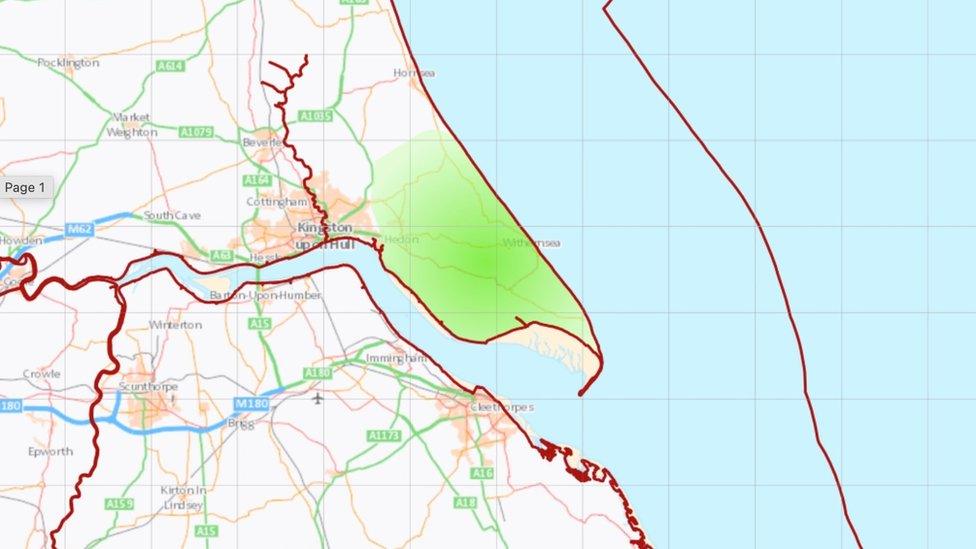
NWS said the area has the potential for a GDF
Critics have previously raised concerns about the impact of such a scheme on the environment and tourism, with some residents in Lincolnshire holding protests.
In Patrington, the plans have met with a mixed response.
Paul Duplock, who runs an electrical and plumbing business, told BBC Look North: "Anything that brings prosperity to the area has to be considered because there's not a lot else.
"A few of the other industries in the area are struggling, so if all the risks are minimised then I think [a GDF] certainly has to be considered."
However, others were concerned about the impact of the scheme, with one woman saying it might "spoil a beautiful area".
Drop-in sessions
1 February - Patrington Village Hall
2 February - The Shores Centre, Withernsea
8 February - Aldbrough Village Hall
9 February - Easington Community Hall
12 February - Burstwick Village Hall
All sessions run from 11:30 GMT to 18:00.

Follow BBC East Yorkshire and Lincolnshire on Facebook, external, X (formerly Twitter), external, and Instagram, external. Send your story ideas to eastyorkslincs.news@bbc.co.uk
Related topics
- Published10 August 2023

- Published14 December 2023
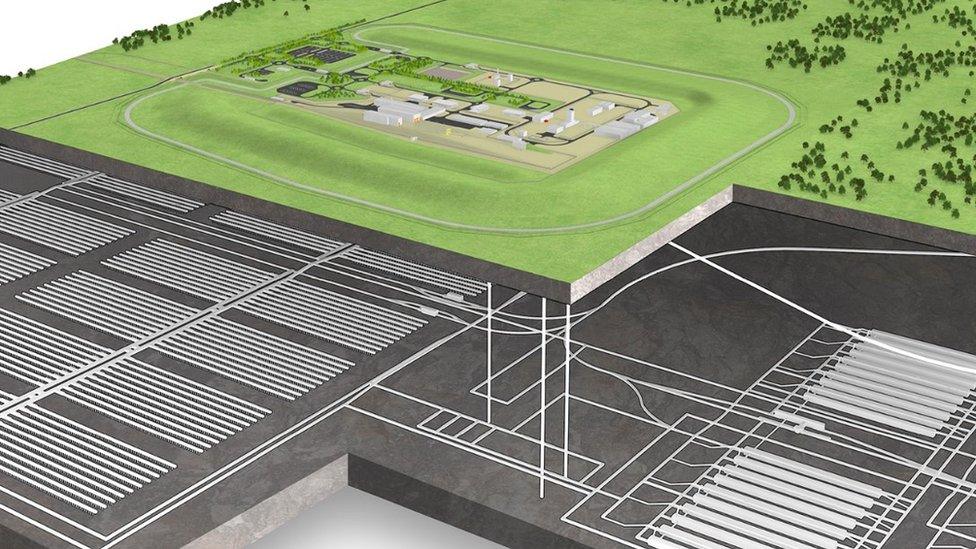
- Published4 August 2023

- Published30 August 2022

- Published13 July 2022
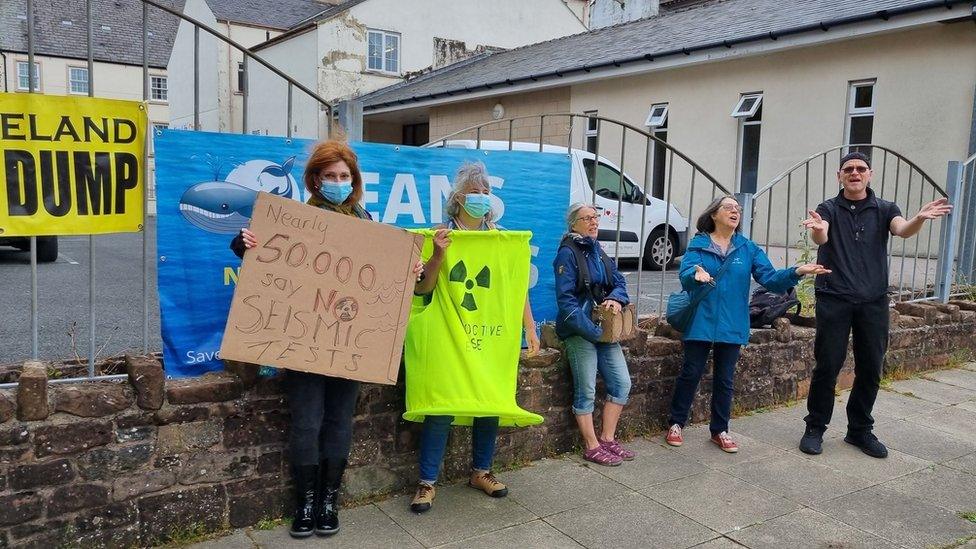
- Published18 January 2016
